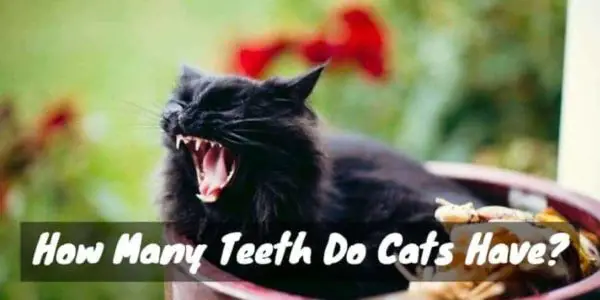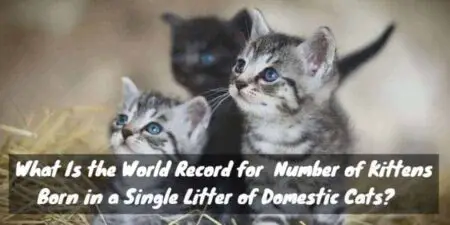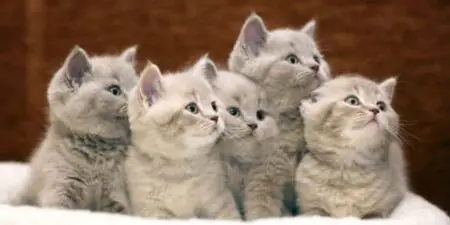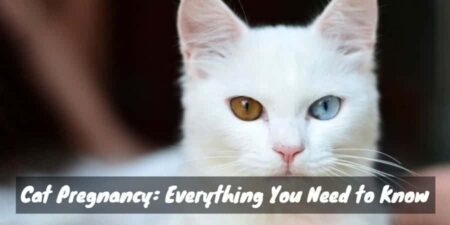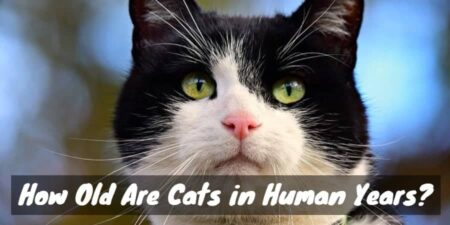Have you ever caught your cat flashing a cheeky grin and wondered, “Just how many teeth are hiding behind that adorable smile?” Well, you’re not alone! In this fun and informative guide, we’ll reveal the answer to the age-old question: how many teeth do cats have?
How Many Teeth?
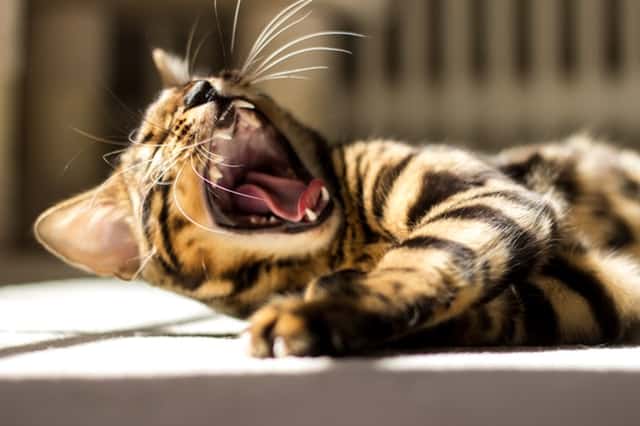
Have you ever wondered about the number of teeth in a cat’s mouth? The total count depends on their age. Cats, like humans, have two sets of teeth during their lives: baby teeth and adult teeth.
When kittens are born, they have no teeth. However, baby teeth appear when they’re about two to four weeks old. By six to eight weeks, kittens usually have 26 baby teeth. As they grow up, these temporary teeth are replaced by adult teeth.
Adult cats typically have 30 permanent teeth. The transition from baby to adult teeth happens between four and seven months of age.
So, the next time you see your cat flashing a grin, you’ll know what’s behind that cute smile!
Baby and Adult Teeth
Curious about your cat’s age? Examining their teeth can provide valuable clues, especially in the case of stray cats. The tiny front teeth, or incisors, sometimes called “fangs,” are the first to appear, followed by the premolars situated just behind the fangs.
As kittens, their premolars emerge at around five to six weeks of age. When it comes to permanent teeth, the process begins with incisors at 11 to 16 weeks, followed by premolars. The molars, located at the back of the cat’s mouth, make their appearance between 20 and 24 weeks. By understanding the timeline of tooth development, you’ll easily estimate your feline friend’s age!
Cats and Cavities
Everyone always wants to know whether or not cats get cavities. You may notice that there are very few cat and dog dentists, and this is because they’re on a very low-sugar diet that does not lead to lots of cavities. When cavities appear, they can be painful for animals, just as they are for humans.
Why Do Cat Bites Get Infected?
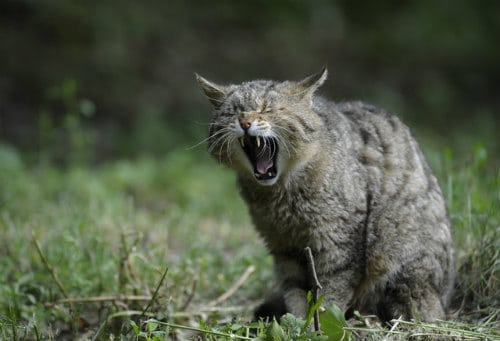
If you own a cat, there’s no doubt you’ve taken a bite or two, which can be deep and painful. The fact of the matter is that cats can leave an infection with these deep punctures, and that’s due to their sharp, pointy fangs, or canines. These sharp teeth are designed similarly to hypodermic needles and can penetrate the flesh intensely.
There are pathogenic bacteria in those fangs, and that means that when your wound closes up, it’s likely to lead to abscess later. When you receive a deep wound from your cat’s teeth, you’re going to need to go on an antibiotic to clear the bacteria from your skin.
Do Cats Re-grow Their Teeth?
Not only do cats, not re-grow teeth, but they also don’t have tooth growth for their entire lives. Once the cat gets 30 permanent teeth in place, then it’s done. Can you imagine what a cat’s mouth would look like if its teeth kept growing all their lives? Your friendly Furball would not look as cute at age 15 as she did when she was a kitten.
Do Cats Wear Braces?
You laugh, but some cats actually do have to wear braces. This is only in the case of severe oral malformations. This is most common in Persian cats who have saber-like canine projections. Braces may also be used when a cat has an uneven bite, causing the canines to protrude at odd angles. This is a problem if it usually impairs the cat from eating or drinking.
Do Cat Teeth Need to Be Extracted?
Some cats suffer from feline odontoclastic resorption lesions or FORLs. This painful condition includes excess salivation, bleeding gums, and difficulty eating. Extraction is the most common procedure used to relieve the discomfort. There is no known cause for FORLs, but researchers have a number of theories.
Do Cats Get Mouth Cancer?
Unfortunately, cats do get mouth cancer. Oral tumors are very serious and require aggressive treatment to amend the situation. When you see lumps, discolored areas, or swelling in your cat’s mouth, it’s imperative that you see your vet at once to get it checked out.
Are You a Bad Parent For Not Brushing?
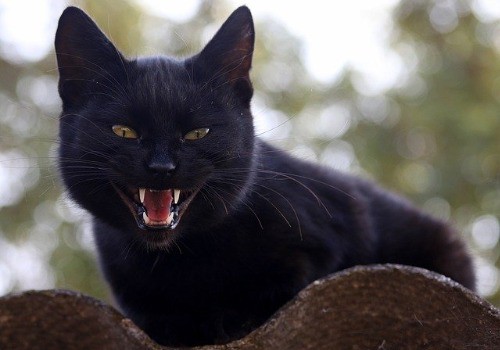
Ever considered the importance of your cat’s dental hygiene? While many cat parents might overlook brushing their feline’s teeth, it’s important to their overall health. Admittedly, it can be a challenging task to do alone. That’s why experts recommend regular dental cleanings by a vet technician under anesthesia, which also allows for dental X-rays to check gum health.
Chances are, the only thing you’ve noticed about your cat’s mouth is its distinctive aroma. But there’s an entire world within that you’re now beginning to explore. Make it a point to check your cat’s dental health occasionally to ensure everything is in order.
Now, let’s dive deeper into the fascinating realm of your cat’s mouth and uncover more mysteries!
[amazon bestseller=”toothbrush for cats” items=”1″ template=”table”]
Similarities Between Human and Cat Teeth
Although cat teeth look very different than human teeth, in reality, they have a lot of similarities. Cats have two successive sets of teeth, as we’ve discussed, and that is what humans have too! The first set, the baby teeth, fall out when they’re young, then the permanent teeth come in.
Although we both have two sets of teeth, the rate at which the baby teeth fall out and become, adult teeth is much more accelerated than it is in humans. Cats are born without teeth, then rapidly get baby teeth, followed by adult teeth. When their teeth are well cared for, they will last well into old age. Unfortunately, the same cannot be said for humans.
Made For Hunting
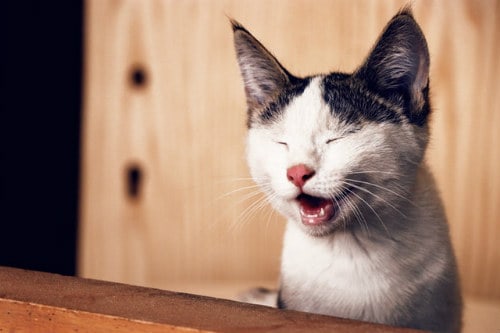
As you can probably tell from those sharp fangs, cat teeth are made for hunting, because they are carnivores by nature. There are no teeth for grinding in the cat’s mouth, but they’re meant for seizing prey and tearing flesh. The grooves on the cat’s canine teeth have what’s called a ‘bleeding groove’ to allow prey to bleed around the tooth.
Another way in which cat teeth are similar to human teeth is that each tooth is meant to serve a different function. They are meant for hunting, and cat teeth are used for grooming. The incisors help cats to chew on their claws and remove loose nails. They also use their teeth to scratch itches on their skin.
Dental Pain
We discussed dental pain earlier, but it’s important to note that cats hide their dental pain from their owners. In fact, cats with dental problems often show no symptoms. That’s why it’s important for a cat owner to be proactive and always check your cat’s mouth for problems.
As we mentioned earlier, you’re looking for drooling, red gums, and changes in eating habits. Sometimes when a cat has mouth problems, you’ll smell a foul odor. It will be akin to an undeniable fishy, rotten smell.
Suffering After Extraction
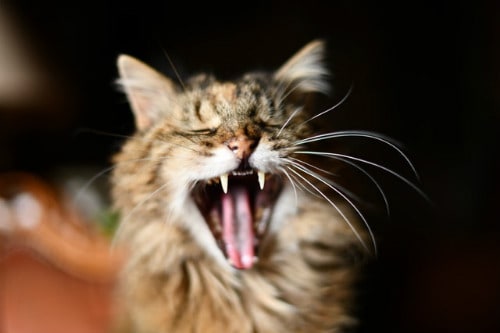
It’s a misconception that if your cat has to have some teeth removed, they will suffer. In truth, cats that have teeth removed can eat wet food, or even dry food, and live a long and happy life after teeth have been removed. The most important thing is to have a healthy, pain-free mouth; if that means extraction, then so be it.
We Need More Information
As cat owners, it’s important that we know as much as possible about our felines in order to ensure their health and safety, but there isn’t a whole lot of information out there about feline dental health! We drove home the need for annual visits to the vet for teeth cleaning, and if you’re a really intrepid cat owner, then be sure to clean your cat’s teeth at home.
Keep in mind that when buying dental products for your cat, you want to see the VOHC seal on the packaging. This means that the Veterinary Oral Health Council approves the product, and you can even check their website for product suggestions and other important facts you should know.
[amazon bestseller=”toothpaste for cats only” items=”1″ template=”horizontal”]
Essentially, when you know as much as you can, look inside that mouth from time to time, and understand the red flags, there’s a good chance that your cat will keep their teeth for life! Unfortunately, the same cannot be said for you, especially when you eat processed foods and sugars.
Bite and Gnaw – A Look at Your Cat’s Teeth (Video)
"In ancient times cats were worshipped as gods; they have not forgotten this."
-- Terry Pratchett

